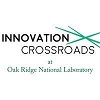
IC COHORT 4 SPOTLIGHT: Becq’s goal is to be the best in the world at radiation shielding
 (EDITOR’S NOTE: This is the second article in a series spotlighting the five start-ups that comprise Cohort 4 of the “Innovation Crossroads” program operated by Oak Ridge National Laboratory with support from the Tennessee Valley Authority. Today’s focus is on Becq.)
(EDITOR’S NOTE: This is the second article in a series spotlighting the five start-ups that comprise Cohort 4 of the “Innovation Crossroads” program operated by Oak Ridge National Laboratory with support from the Tennessee Valley Authority. Today’s focus is on Becq.)
There’s an old axiom that the best recruiter is a satisfied customer, and it certainly proved to be true in the case of Danielle Castley, one of the participants in Cohort 4 of the “Innovation Crossroads” (IC) program operated by Oak Ridge National Laboratory (ORNL).
“I attended the Neutron Scattering Camp at ORNL in 2016,” the recent PhD graduate of Dartmouth College told us. The official name is the “National School on Neutron and X-Ray Scattering,” operated jointly by ORNL and Argonne National Laboratory. As if that was not enough familiarity with the local lab and its capabilities, she also met two other IC participants – Jesse Thornburg of Grid Fruit (Cohort 3) and Megan O’Connor of Nth Cycle (Cohort 2).
“Jesse and I competed against each other in the American University of Sharjah New Venture Challenge, an international deep-tech business plan pitch competition in the United Arab Emirates,” Castley said. “He was such a great guy and so helpful before the final round of the competition.” That help included advising her on how to revise the first three slides of her pitch deck for the February 2019 event that she won (see Dartmouth article here).
At a later event for National Science Foundation (NSF) Small Business Innovation Research (SBIR) grant winners – she had won a Phase I from the National Science Foundation (NSF), Castley met O’Connor. Both IC participants encouraged her to apply. “I wondered if we were good enough,” she said, and the answer was obviously “yes.”
Castley and her company – it is officially named Neutroelectric LLC but doing business as Becq – is developing a neutron-shield material for the nuclear power industry and other applications where radiation emissions are involved. She explains that innovation in the neutron shielding market has lagged for the past several decades, and Becq’s technology is a breakthrough for the field. Its initial product offering – NE-300 – is a lightweight, high-temperature neutron shielding material that can sustain an operating temperature of 300oC instead of the current threshold of 180oC.
The focus of the company attracted the attention of TVA which has partnered with ORNL to sponsor a start-up in both Cohort 3 and Cohort 4; Becq was selected as TVA’s sponsored Cohort 4 team
“Over the last five years, I experimented with thousands of combinations of materials and talked to over 200 potential customers,” Castley says. “We are 99 percent there, but we need to optimize the last one percent and complete the testing and formula adjustments required to produce it at commercially viable volumes.”
That’s the work she will undertake at ORNL over the next two years. At the conclusion of the “Innovation Crossroads” Fellowship, Castley expects to have a fully-developed product that includes a proven material formulation, a technical sourcebook that documents the material characterization, and procedures for mass production. Some of the material testing is supported by a recent grant from the U.S. Department of Energy’s “Gateway for Accelerated Innovation in Nuclear” (GAIN) program and pilot-production testing will be funded by the NSF SBIR Phase II program.
With the interest of both ORNL and TVA, two customer groups are obvious – power plants and national laboratories. Others include spent fuel storage vendors and suppliers to entities that have nuclear facilities like the U.S. Navy.
“NE-300 is for anyone who has to stop neutrons,” Castley says.
You might ask, “How did the New Jersey native become involved in serving the nuclear sector?”
“I love nature and preserving our environment,” Castley says. After earning a Bachelor of Applied Science and Master’s in Mechanical Engineering at Drexel University, she started working in the defense industry. “I wasn’t getting into it,” she says of the job. “I wanted to do something impactful in clean energy, and nuclear is our best option.”
That led her to become a Project Manager for an international nuclear engineering corporation where she saw global demand for higher temperature neutron shields. Based on that knowledge, Castley decided she wanted to focus her career in radiation shielding materials and applied for a PhD program in engineering at the Thayer School of Engineering at Dartmouth College. Castley selected Thayer because of its ‘PhD Innovation Program’ which enhances the engineering PhD curriculum with entrepreneurship, law, and finance courses to prepare engineers to commercialize their PhD work.
“Innovation Fellows at Dartmouth received private funding for their PhD project, so I had the flexibility to work with my Advisor on neutron shielding technology,” Castley noted. That project and subsequent involvement of the NSF I-Corps program are foundations for Becq. Castley serves as Chief Executive Officer of the company that was officially founded in 2016, but really did not launch operations until July 2019.
“I have a real passion for what we are doing,” she says. “I want Becq to be the best in the world at radiation shielding.”
ORNL produced YouTube videos on each participant in Cohort 4. Here’s a link to the one of Becq.
Like what you've read?
Forward to a friend!

